Today the RSPB issued two press releases, one on burning in the uplands, the other on the annual Birdcrime report. It’s a bit unusual for two press releases to come out on the same day but today is the start of the burning season in the uplands and so that timing makes complete sense. I guess the necessity to issue the Birdcrime report (for 2019 after all, it’s hardly hot news!) on the same day might be something to do with the Tory Party Conference being this weekend and so it was felt wise to get those messages out now too. I’ll come back to bird crime later today, burning is the burning issue.
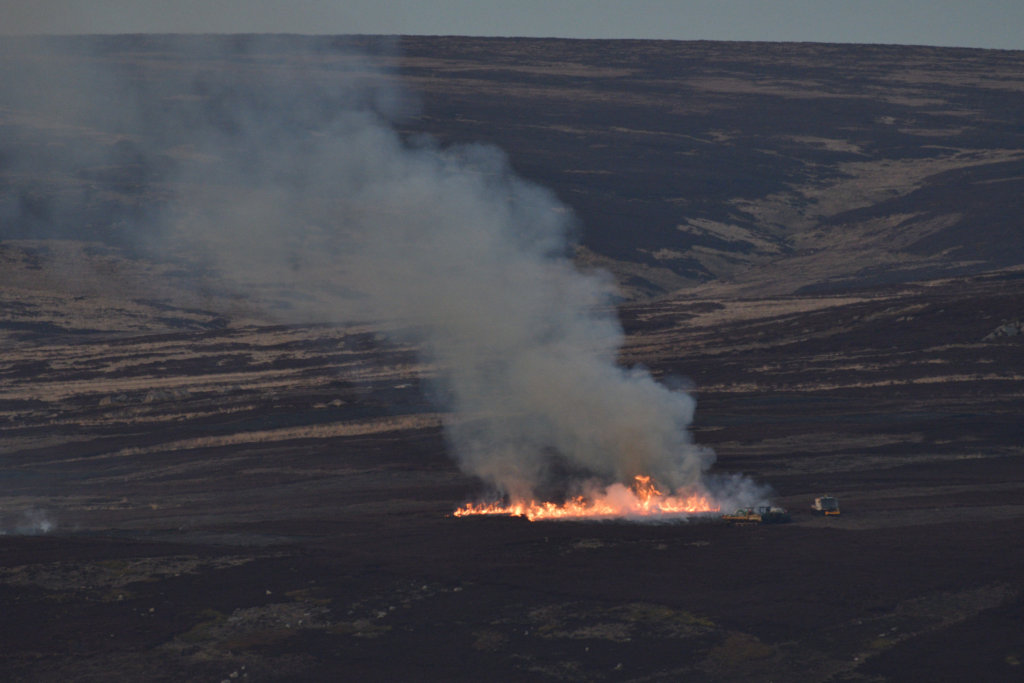
This is a good press release on burning, it’s timely, it’s tough talking and it has a variety of quotes from others. It comes at a time when DEFRA is dragging its feet over banning burning on peatlands (see this post here from August). Since nobody trusts the word of a Conservative minister these days (it would not have been the case in distant times) it is absolutely right for all of us to keep pressing for the action that has been promised.
It’s good to see a wide range of local authorities adding their voices for a ban on burning on peatlands.
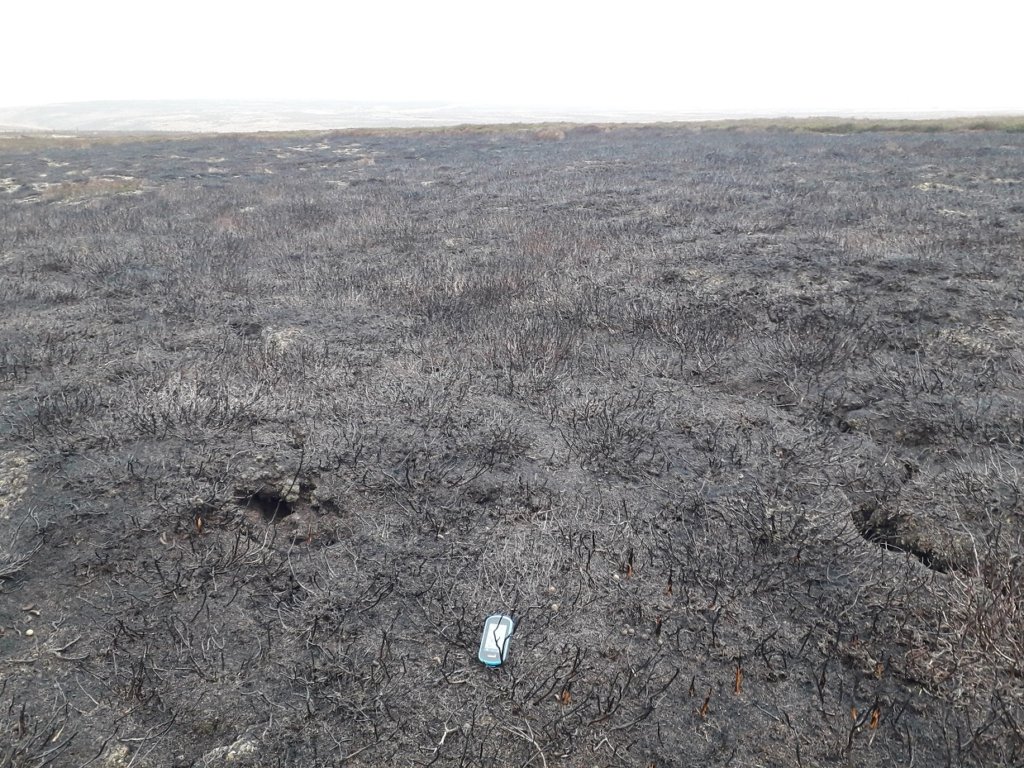
The RSPB kicked all of this off in 2012 with a complaint to the EU – that will be before many RSPB staff now engaged in advocacy on this subject had started work for RSPB (before they had started work of any sort for some of them, I guess). These things take a very long time and we need to thank the RSPB for their tenacity in sticking with this issue. If the RSPB had campaigned harder then quicker progress might well have been made, but that they are still plugging away after eight years is a character trait to be applauded.
Successful advocacy is a marathon not a sprint, in fact it is something of a marathon steeplechase as large barriers are put in your way every now and again. And, to stretch the analogy further, it is only because in large NGOs it can be turned into a relay marathon steeplechase, with the baton being passed on to new fit runners now and again that the winning line can be reached at all. However, I know that quite a few of the RSPB staff who kicked this all off back in 2012 are still hanging on in there, with sore feet and not yet having breasted the tape, but surely, surely, the end of the race is close at hand?
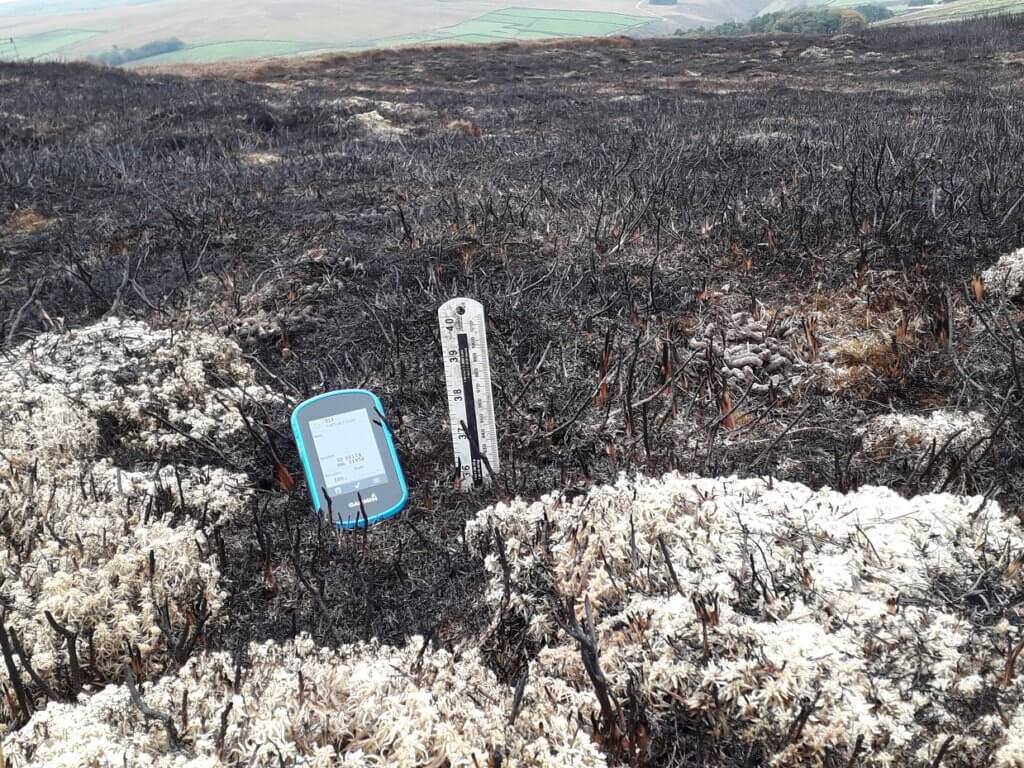
Or will George Eustice fail to deliver on government promises? He could clear this up by telling us all – simple as that.
Rebecca Pow failed to offer any firm commitment on when, or how, or to what extent burning will end. But as of today, the opening of the burning season, there is nothing to stop upland owners and managers continuing to carry out habitat-damaging and environmentally harmful heather burning. The facts that burning was curtailed at the end of the last burning season last spring (due to dry weather in Lockdown) and that moorland mismanagers know that the days of burning are probably coming to an end fairly soon, will probably, knowing the community involved, lead to an increased level of burning to make up for future losses. I haven’t seen a call from the Moorland Association for burning restraint, have you?
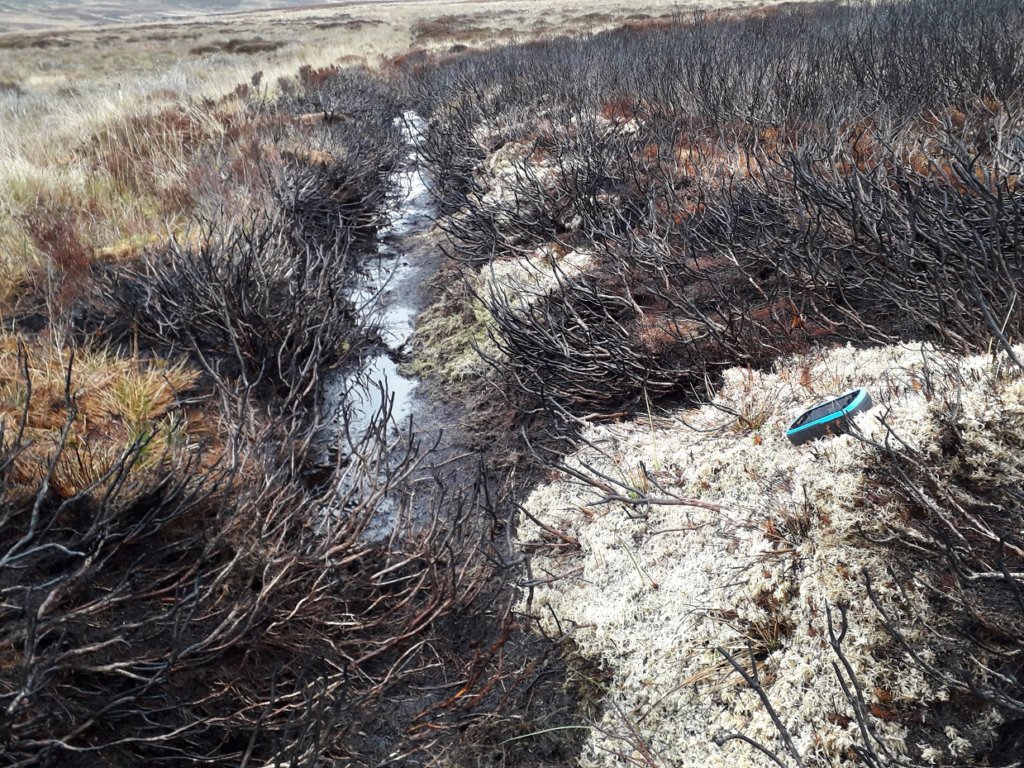
Will an announcement come soon? Will it be an announcement of a complete ban of burning on peat soils? Will it come into play immediately or be phased in over days, weeks, months, years, decades?
Whenever it comes, if it comes, this government will get only faint praise as they have taken for ever and have put themselves in the position of looking as though they are unwilling to do the right thing.
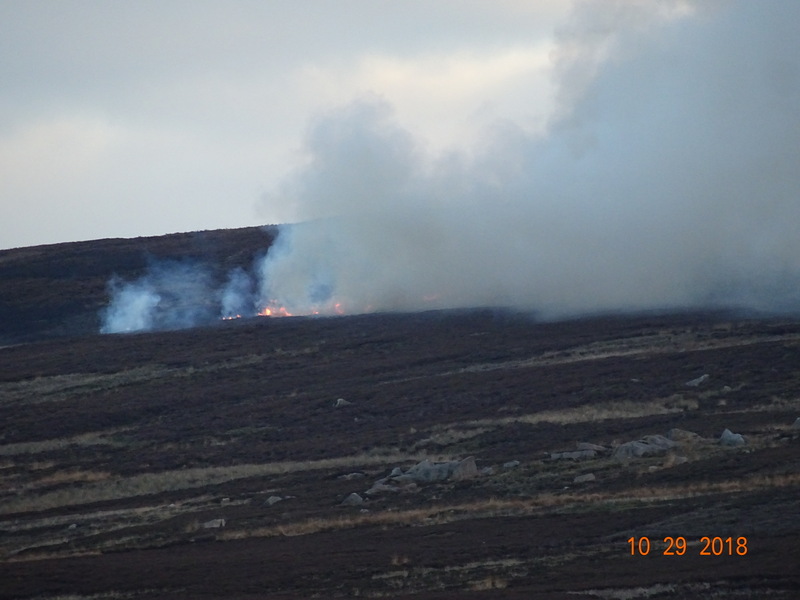
Pertinent to the Conservative Conference and also the RSPB AGM on Oct. 10th. The agenda includes the RSPB Review of Game shooting and Upland Management. Really looking forward to that. See you there virtually Mark?
See you at the AGM too virtually, Richard
Well said Mark right on the button as usual.
Perhaps we should also pursue the state of grouse moor affairs in Scotland with the SNP. I am sure RSPB Scotland are doing that but it all seems a bit quiet just now,
I fully support the RSPB call to ban burning on peatlands. However, I think that they could be clearer and could go further.
They don’t (as far as I can see) define ‘peatland’ and the press release variously refers to burning on ‘peatland’, ‘peat’ and on ‘blanket bog’. These are quite different definitions – blanket bog is much more restricted than peat, there are large areas of wet heath (not blanket bog) that have peat soils, usually quite shallow (10 to 50cm), some areas of dry heath have shallow peat too and even where there is no peat this may have been lost due to burning in the past.
Calling for a ban on burning on blanket bog is easy and RSPB and others have been doing that for a long time. Calling for a ban on burning on all peat soils or even all moorland is much bigger, would have a much larger impact on grouse shooting and would also have implications for targeted burning on nature reserves (including some RSPB reserves).
Personally, living in the Scottish Highlands I hope RSPB are calling for a ban on any burning on moorland, peat or no peat. It would be helpful if they could clarify what they are really asking for.
Despite this detail (it is a big detail…) good on RSPB for pursuing this and good on them for pulling together a range of views to support their position.
Couldn’t agree more that there should be no burning on any peat soil. The shallower, drier peats must be even more vulnerable to damage. How can we complain about burning in the Amazon when we allow it all over our uplands?
I concur absolutely with a ban on Muirburn, and not only for the points you have raised; but also for the health of residents local to the moors.
The amount of chest complaints, Asthma, bronchitis, Pneumonia and to a lesser extent Lung cancer, will already be known in and around the old coal and Industrial towns. Smoke from the burning will exacerbate this, as well as bringing carbon and smoke particulate into homes.
Also, with the Covid ramping up, clean air becomes a necessity for people affected.
I’m a former nurse, with asthma, amongst other problems, and I remember the air becoming much cleaner when the countrywide lockdown was in place.
So how will the amount of tall Heather be reduced to help stop wild fires caused by members of the public having barbecues on the moors getting out of control and killing ground nesting birds
The BBQ problem would be mostly solved by not producing and selling disposable BBQ products. Or just banning them. The regret damage caused can run into six figures for a single event. Then you have to factor in the cost of fighting the fires and having to redo the restoration work.
Avery you spend all day online moaning about any aspect of shooting and trying to continuously undermine projects to increase hen harrier r numbers.
Your not a conservationist just a continual moaner.
Mike – I can teach you nothing about moaning, that’s all you do here.
Good to see local politicians in N England getting on board (e.g Manchester mayor). Would have thought that with local support behind them councils could ban this stuff without a local ban. Didn’t they get crop residue burning banned?
Mr Avery you certainly like the sound of your own voice. You must spend all your time on a computer rubbishing anything anyone does for wild birds including saving Hen Harriers. You would give an old woman a bad name. Moan moan moan. Thats all you do.
Mike – you appear insensitive to the irony of continually coming on to this blog and moaning about me moaning. Self awareness courses must be available near you.
Old women are wonderful. They keep society going. Please show some respect
Greenfly – I took it as a rare compliment…
Wow! I bet Mark’s absolutely reeling in the face of Mike’s incisive, science-based critique! It seems that he’s become bored with parroting his “left wing socialist agenda” phrase, and switched to “moan moan moan”. Of course, despite trying his best, he’s still making a pig’s ear of punctuating his attempts at trolling this blog.
Do we take then that the RSPB will not be doing any burning on there sites including lowland ones?
Aye, what do folk think about RSPB burning on their own land, for example black grouse management or to get tree regeneration? Justified when it is for clear conservation reasons or no different to burning for grouse?
Sorry but Burning is burning
When are NE (and the people applying for their licenses) going to want numbers of shot crows, gulls, etc. recorded and reported (and checked)? Or even giving figures for the released numbers of non-native birds? Or the number of mountain hares shot/trapped? And does artificial (human-driven) reduction of the number of mountain hares have an effect on golden eagle populations?
They’re, their, there.
There’s some important differences.